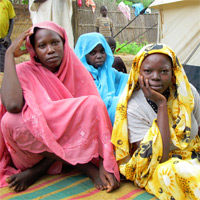
Editor’s note:
The growing movement to bring a long overdue end to the crisis in eastern Congo is approaching a make-or-break decision point. The international architecture needed to bring transparency
and accountability to the minerals trade in the Great Lakes region of Africa is taking shape in the form of U.S. legislation, a U.N. Security Council resolution, and an emerging norm for due diligence on purchasing minerals. These are enormous accomplishments, but unless these standards are accompanied by an international certification process with independent monitoring and enforceable penalties on the ground, as well as comprehensive reform of the Congolese Army, they will do little to end the conflict minerals trade in Congo or bring a measure of security and genuine economic opportunity to the lives of Congolese civilians.
This report, based on interviews conducted by John Prendergast and Fidel Bafilemba in North Kivu in November 2010, provides an overview of the extent to which the minerals trade from eastern Congo today remains dominated by a mafia network of military, political, and business interests in Congo, its neighbors, and within the supply chains that connect the mines to international markets. These actors have benefitted enormously from Congo’s protracted, violent status quo and they are deeply threatened by the possibility of a shrinking market for their minerals. So it should come as no surprise that some of the fastest-moving efforts to trace and audit mineral supply chains are actually being driven by many of the same commercial actors and regional governments that have been indiscriminately purchasing Congolese minerals for years, as documented by U.N. investigators.
Going forward, there are significant conflicts of interest embedded in industry-driven traceability schemes or regional certification efforts owned wholly by the same governments that continue to have a stake in a tainted system. Because profit is the primary motivator for these actors, we believe they will engage in a peaceful minerals trade, if the benefits of complying with international standards outweigh the costs of continuing the violent status quo. Current in-region sourcing and regional certification systems do not meet those standards. Both businesses and governments should be involved in the development of a new certification system, but the current framework of allowing them to own it wholly will do almost nothing to transform the mineral trade from a driver of conflict to an enabler of peace.
Instead, the Unites States government and its allies, as well as responsible companies at the end of the supply chain with an interest in cleaning up the trade in critical raw materials, should partner with the region to help develop a certification process that includes robust checks and penalties needed to make sure that behavior actually changes. The international community needs to take a stake in how these measures are implemented, recognizing all of the challenges therein. Enough will soon be releasing a series of papers and briefings that detail our own approach to this vexing but crucial chapter in the road to a conflict-free Congo.
–David Sullivan, Enough Research Director

